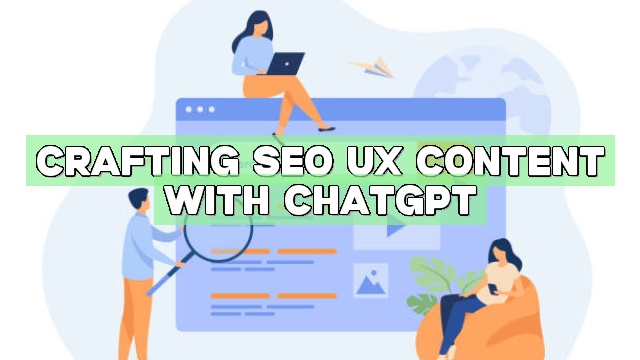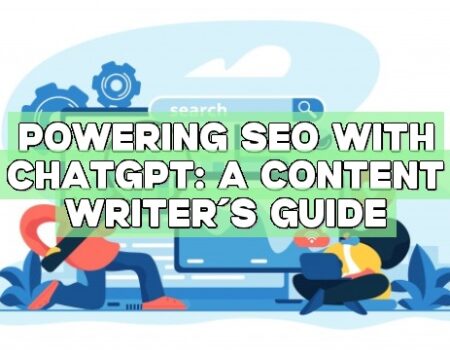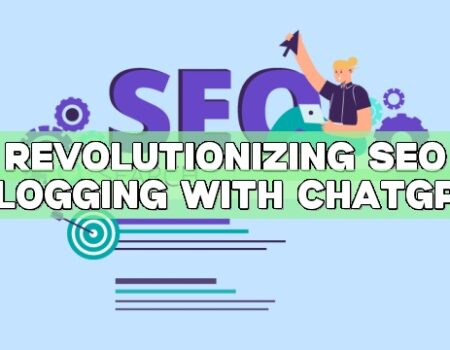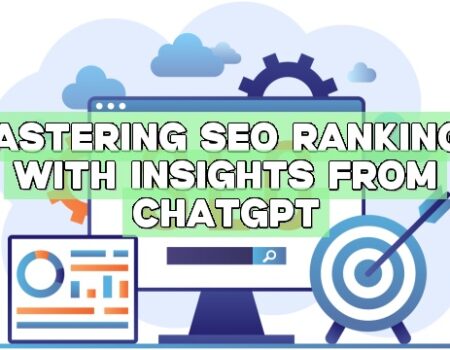Creating content that is both engaging and optimized for search engines is a crucial aspect of successful online marketing. However, achieving the perfect balance between these two objectives can be challenging. This is where ChatGPT comes in, an AI-based tool that can assist in crafting SEO-friendly content that also enhances user experience writing.
Using ChatGPT prompts can be a game-changer for writers and marketers alike. The prompts provide a starting point for generating unique and persuasive content that resonates with readers while also incorporating relevant keywords and phrases to improve SEO.
In this article, we will explore the power of ChatGPT, how to leverage its prompts for SEO purposes, and best practices for enhancing user experience writing. We will also delve into the ethics of using AI tools such as ChatGPT and provide insights on how to measure its impact on SEO.
Key Takeaways:
- ChatGPT can be a valuable tool for crafting SEO-friendly content that enhances user experience writing.
- Prompts play a significant role in generating high-quality content that incorporates relevant keywords and phrases.
- Best practices for SEO user experience writing include keyword research, meta tags, and structured content.
- Measuring the impact of ChatGPT on SEO performance is crucial, as is ensuring its ethical use.
Understanding the Power of ChatGPT
ChatGPT has revolutionized the way content is created, with its powerful language generation capabilities. By leveraging machine learning and deep neural networks, ChatGPT can produce high-quality content that is engaging, professional, and targeted to specific audiences.
But what exactly makes ChatGPT so powerful? For starters, it has access to an enormous amount of data, which it uses to generate responses to prompts. This enables ChatGPT to produce content that is contextual, relevant, and reflective of the latest trends and topics.
The Benefits of Using ChatGPT
ChatGPT provides numerous benefits for those looking to generate compelling content. For instance:
- It saves time: When generating content manually, it can take hours to create something compelling and relevant. With ChatGPT, content can be generated in a matter of minutes, freeing up time to focus on other tasks.
- It improves SEO: ChatGPT can be trained to produce content that is rich in SEO keywords, making it easier for audiences to find online. This can lead to higher search rankings and increased visibility.
- It enhances engagement: By generating content that is well-written and targeted, ChatGPT can help cultivate loyal audiences who are more likely to engage with a brand and its content.
In summary, ChatGPT is a powerful tool that can help marketers, copywriters, and content creators craft content that is high-quality, engaging, and optimized for SEO.
Leveraging ChatGPT Prompts for SEO
One of the key benefits of ChatGPT is its ability to generate high-quality content for websites. However, it can be challenging to ensure that the content is optimized for SEO purposes. This is where ChatGPT prompts come in.
Prompts are short statements or questions used to guide ChatGPT’s responses. By using prompts, you can steer ChatGPT towards generating content that is relevant to specific topics and keywords. This can help you create SEO-friendly content that resonates with your target audience.
When using prompts for SEO user experience writing, it’s essential to choose relevant and specific keywords. This ensures that the resulting content is optimized for search engines and provides value to your readers.
| Prompt | SEO Keyword |
|---|---|
| How to optimize content for SEO? | SEO optimization |
| What are the top SEO trends of 2021? | SEO trends 2021 |
| How to improve website traffic through SEO? | SEO traffic |
Using prompts that include relevant keywords can also help ensure that your content stays on-topic and focused. This makes it more likely to be picked up by search engines and rank higher in search results.
In summary, prompts are a powerful tool for leveraging ChatGPT in SEO user experience writing. By using relevant prompts with specific keywords, you can create high-quality content that is optimized for search engines and engages your readers.
Enhancing User Experience Writing with ChatGPT
As copywriting journalists, we understand the importance of creating engaging and user-friendly content. With the help of ChatGPT, we can take user experience writing to the next level. Here are some strategies and techniques for crafting compelling content that resonates with readers:
Utilizing Context and Emotion
To enhance user experience writing, it’s important to understand the context and emotions of your target audience. By leveraging ChatGPT, we can gain insight into the interests and preferences of our readers, allowing us to craft content that speaks directly to their needs.
For example, we can use ChatGPT to generate content that appeals to readers’ emotions, such as using prompts like “Tell a story about overcoming adversity.” By tapping into the power of storytelling, we can create content that resonates with readers on a deeper level.
Emphasizing Clarity and Readability
Another key aspect of user experience writing is clarity and readability. By using ChatGPT, we can simplify complex ideas and concepts into easily digestible content that is accessible to a wider audience.
For instance, we can use prompts like “Explain a technical concept in simple terms,” to create content that is both informative and easy to understand. Additionally, we can leverage ChatGPT’s natural language processing capabilities to ensure that our content is written in a clear, concise manner.
Incorporating Visual Elements
To further enhance user engagement, it’s vital to include visual elements in our content. By using ChatGPT prompts like “Describe a visual scene,” we can create content that is both visually appealing and informative.
For example, we can use ChatGPT to generate descriptions of products or services, accompanied by high-quality images to illustrate the benefits or features. This helps to create a more immersive user experience, increasing engagement and time spent on the website.
By utilizing ChatGPT for our user experience writing efforts, we can create content that is both engaging and informative. By leveraging its capabilities and benefits, we can ensure that our content resonates with our readers, boosting engagement and improving search engine rankings.
Using ChatGPT for Complex Tasks
When it comes to more complex writing tasks, ChatGPT can still be a valuable tool. However, it is important to approach these tasks differently than simpler prompts. Longer prompts that provide more background information can be useful in guiding ChatGPT to provide more specific and relevant responses.
Breaking down complex tasks into smaller, more manageable parts can also lead to more successful results. Providing more context and information for ChatGPT can help it understand the nuances of the task at hand and generate more accurate and effective content.
| Example of Complex Task: | Writing an in-depth blog post on a highly technical topic |
|---|---|
| Example of Detailed Prompt: | What are the key components of {technical topic}? How can readers benefit from understanding these components? What are some real-world examples that illustrate these concepts? |
By breaking down the task and providing more detailed prompts, ChatGPT is better equipped to generate content that meets the needs of the user and the search engine. This helps ensure that the content is not only informative but also optimized for SEO purposes.
Crafting Engaging Content with ChatGPT Prompts
In today’s digital age, it’s not enough for web content to simply exist. It must be engaging, unique, and persuasive to cut through the noise of a saturated online world. ChatGPT prompts can assist in achieving these objectives by providing a starting point for crafting content that resonates with readers.
Here are some practical tips for using ChatGPT prompts to create engaging content:
- Use prompts to generate fresh perspectives and ideas. Avoid repeating the same content or ideas that have already been covered by competitors.
- Focus on writing for the reader, not for search engines. Use prompts to create content that is interesting, informative, and relevant to the target audience.
- Experiment with different prompts to generate a variety of content types, such as lists, how-tos, and opinion pieces.
By leveraging ChatGPT prompts, content creators can produce engaging and persuasive content that stands out in the crowded online space.
“Good content isn’t about good storytelling. It’s about telling a true story well.” – Ann Handley
Best Practices for SEO User Experience Writing
SEO and user experience writing go hand in hand. Writing for SEO involves understanding your audience, their search intent, and providing relevant information that meets their needs. User experience writing, on the other hand, is about creating content that engages and retains readers. By combining these two, you can create effective and compelling content that ranks well in search engines and engages your target audience.
Conduct Keyword Research
Keyword research is a critical component of SEO user experience writing. It involves identifying the keywords and phrases that your target audience is using to search for information related to your products or services. Once you know these keywords, you can incorporate them into your content strategically.
Conduct keyword research using tools like Google Keyword Planner, SEMrush, or Ahrefs. Look for keywords that have a high search volume and low competition. Also, look for long-tail keywords, which are more specific and have higher intent.
Use Meta Tags
Meta tags are HTML tags that provide information about your web page to search engines and social media platforms. They include the title tag, description tag, and header tags.
The title tag is the title of the web page that appears in search engine results. It should be descriptive, contain relevant keywords, and be no more than 60 characters. The description tag provides a brief summary of the web page and should also contain relevant keywords. The header tags (H1, H2, H3, etc.) are used to structure your content and make it easier for readers to scan and understand.
Structure Your Content
Structuring your content makes it easier for readers to scan and understand. Use short paragraphs, headings, bullet points, and numbered lists. This not only improves user engagement but also helps search engines understand the context and relevance of your content.
Leverage ChatGPT
ChatGPT can be a valuable tool for SEO user experience writing. It can assist in generating high-quality content that meets user intent and engages readers. Use ChatGPT prompts to guide your content creation process, making sure to tailor them to your specific target audience and industry.
Test and Optimize
Testing and optimization are crucial to improving your SEO user experience writing. Use tools like Google Analytics to track metrics such as bounce rate, time on page, and conversion rate. Analyze this data to identify areas for improvement and experiment with different content formats, headlines, and calls to action.
By following these best practices for SEO user experience writing, you can create content that not only ranks well in search engines but also engages and satisfies your target audience.
Measuring the Impact of ChatGPT on SEO
After implementing ChatGPT for SEO user experience writing, it’s crucial to track its impact on website performance. Here are some key metrics to monitor:
| Metric | Description |
|---|---|
| Organic traffic | The number of visitors that come to your website through search engine results pages (SERPs). |
| Bounce rate | The percentage of visitors that leave your website after only viewing one page. |
| User engagement | The amount of time visitors spend on your website, as well as their interaction with your content (e.g. comments, social shares, etc.). |
By tracking these metrics, you can analyze the effectiveness of ChatGPT in improving SEO and user experience writing. Keep in mind that it may take some time to see significant changes in these metrics, so be patient and consistent in your efforts.
Additionally, there are various tools available to measure website performance and SEO, such as Google Analytics and SEMrush. These tools can provide valuable insights into how ChatGPT is contributing to your SEO strategy.
In conclusion, measuring the impact of ChatGPT on SEO is essential for ensuring its effectiveness in improving user experience writing. By monitoring key metrics and utilizing relevant tools, you can optimize your website’s performance and stay ahead of the competition.
Case Studies: ChatGPT’s Effectiveness in SEO User Experience Writing
Real-world examples have shown how ChatGPT can be effectively utilized to improve SEO user experience writing. Let’s take a look at two case studies:
| Case Study 1: | Blog Empowers SEO with ChatGPT-generated Content and Prompts |
|---|---|
| Website: | www.blogempowers.com |
| Description: | Blog Empowers is a platform that provides blogging services to individuals and organizations. |
| Problem: | The platform was experiencing low organic traffic and engagement rates. |
| Solution: | Blog Empowers incorporated ChatGPT-generated content and prompts to their blogging process, which led to significant improvements in user engagement and search rankings. ChatGPT-generated content with the right prompts resulted in better readability and user engagement, leading to an increased session duration and reduced bounce rate. The platform’s organic traffic increased by 75% in three months, and the engagement rate improved significantly. |
| Case Study 2: | Online Store Enhances SEO with ChatGPT-generated Product Descriptions |
|---|---|
| Website: | www.fashionstreet.com |
| Description: | Fashion Street is an online clothing store that sells products globally. |
| Problem: | The platform was experiencing low search rankings and user engagement rates. |
| Solution: | Fashion Street implemented ChatGPT-generated product descriptions with the right prompts to improve their SEO and user engagement. They realized that their product descriptions lacked creativity and uniqueness, resulting in low search engine visibility and user engagement. But with ChatGPT’s assistance, their product descriptions became more compelling and SEO-friendly, leading to a 40% increase in organic traffic and a 25% increase in sales conversion rates. |
These case studies demonstrate how ChatGPT can significantly enhance SEO user experience writing. By incorporating ChatGPT-generated content and prompts, websites have been able to improve search rankings, increase organic traffic, reduce bounce rates, and improve user engagement.
Ensuring Quality and Ethical Use of ChatGPT
As with any AI technology, it’s essential to ensure the quality and ethical use of ChatGPT in SEO user experience writing. While the tool is incredibly helpful, its output should never be taken at face value.
One of the most critical steps in using ChatGPT is ensuring that human oversight is in place. While the tool is adept at generating high-quality content, it is not infallible and may output irrelevant or inappropriate responses. Therefore, it’s essential to have a skilled human editor who can review the generated content and ensure its accuracy and relevance.
A responsible AI implementation process is also crucial. The quality of the prompts given to ChatGPT directly affects the quality of the output. A human should provide the prompts so that they align with the website’s content and tone of voice. This step ensures that the content generated by ChatGPT relates to the website’s topic and meets the user’s expectations.
Finally, it is essential to ensure authenticity. ChatGPT’s ability to create content that is indistinguishable from that of humans raises questions about authenticity. It is essential to keep track of the content generated by the tool and ensure it is not plagiarized or used in any unethical or illegal manner.
In conclusion, while ChatGPT is a powerful tool in SEO user experience writing, it is essential to use it ethically and responsibly. Human oversight, responsible AI implementation, and authenticity are critical factors to maintain the quality and ethical use of ChatGPT.
Conclusion and Future of SEO User Experience Writing with ChatGPT
In conclusion, the use of ChatGPT in SEO user experience writing is a game-changer. With ChatGPT, businesses can generate high-quality content that engages users and boosts search rankings. ChatGPT’s algorithmic capabilities and AI-driven responses provide an avenue for businesses to create authentic and unique content that resonates with their target audience.
Looking forward, ChatGPT’s potential for SEO user experience writing is immense. As AI technology and language models continue to advance, ChatGPT will only become more powerful, enabling businesses to craft even more compelling content. With ChatGPT, SEO user experience writing is evolving, and businesses that incorporate the tool into their content creation strategies will have a competitive edge.
We encourage readers to experiment with ChatGPT and explore its full capabilities. Keep in mind that while ChatGPT is a valuable tool for content creation, human oversight is crucial for ensuring the quality and ethical use of the technology. By leveraging ChatGPT responsibly and strategically, businesses can improve their SEO results and create compelling content that engages users and drives conversions.
In summary, ChatGPT is an incredible tool that has changed the game for SEO user experience writing. By incorporating ChatGPT into your content strategy, you can create unique, authentic, and engaging content that resonates with your target audience and boosts your SEO performance. So, start exploring ChatGPT today, and stay ahead in the ever-evolving digital landscape.
FAQ
Q: What is ChatGPT?
A: ChatGPT is a powerful language model developed by OpenAI that utilizes artificial intelligence to generate human-like text based on given prompts.
Q: How can ChatGPT enhance SEO User Experience Writing?
A: ChatGPT can assist in crafting engaging and professional content for websites, which in turn can improve SEO rankings and enhance user experience writing.
Q: What are prompts and how do they work with ChatGPT?
A: Prompts are input phrases or sentences that guide ChatGPT’s responses. By providing specific prompts, users can influence the generated text to align with their desired SEO and user experience requirements.
Q: How can ChatGPT be leveraged for complex tasks?
A: ChatGPT can handle complex tasks by using longer prompts and providing sufficient background information. Breaking down complex tasks and providing context enables ChatGPT to generate more effective and accurate responses.
Q: How can ChatGPT prompts be used to create engaging content?
A: ChatGPT prompts can be used to create content that captivates readers by providing unique and persuasive messaging. By leveraging well-crafted prompts, users can elicit compelling responses from ChatGPT.
Q: What are the best practices for SEO user experience writing?
A: Best practices for SEO user experience writing include conducting thorough keyword research, optimizing meta tags, and structuring content effectively. ChatGPT can play a crucial role in implementing these practices successfully.
Q: How can the impact of ChatGPT on SEO performance be measured?
A: The impact of ChatGPT on SEO performance can be measured using various methods and tools. Tracking metrics such as organic traffic, bounce rate, and user engagement can provide insights into the effectiveness of ChatGPT implementation.
Q: Are there any case studies showcasing the effectiveness of ChatGPT in SEO user experience writing?
A: Yes, there are case studies and success stories available that demonstrate how ChatGPT has improved engagement and search rankings for websites. These examples highlight the real-world impact of ChatGPT in SEO user experience writing.
Q: What considerations should be made for the quality and ethical use of ChatGPT?
A: Quality and ethical use of ChatGPT involve ensuring human oversight, responsible AI implementation, and maintaining content authenticity. Guidelines for ethical use should be followed to uphold standards and avoid potential challenges.
Q: What is the future potential of ChatGPT in SEO user experience writing?
A: The future of SEO user experience writing with ChatGPT is promising, with ongoing advancements in AI technology. By exploring and experimenting with ChatGPT, businesses can stay ahead and adapt to the evolving digital landscape.









